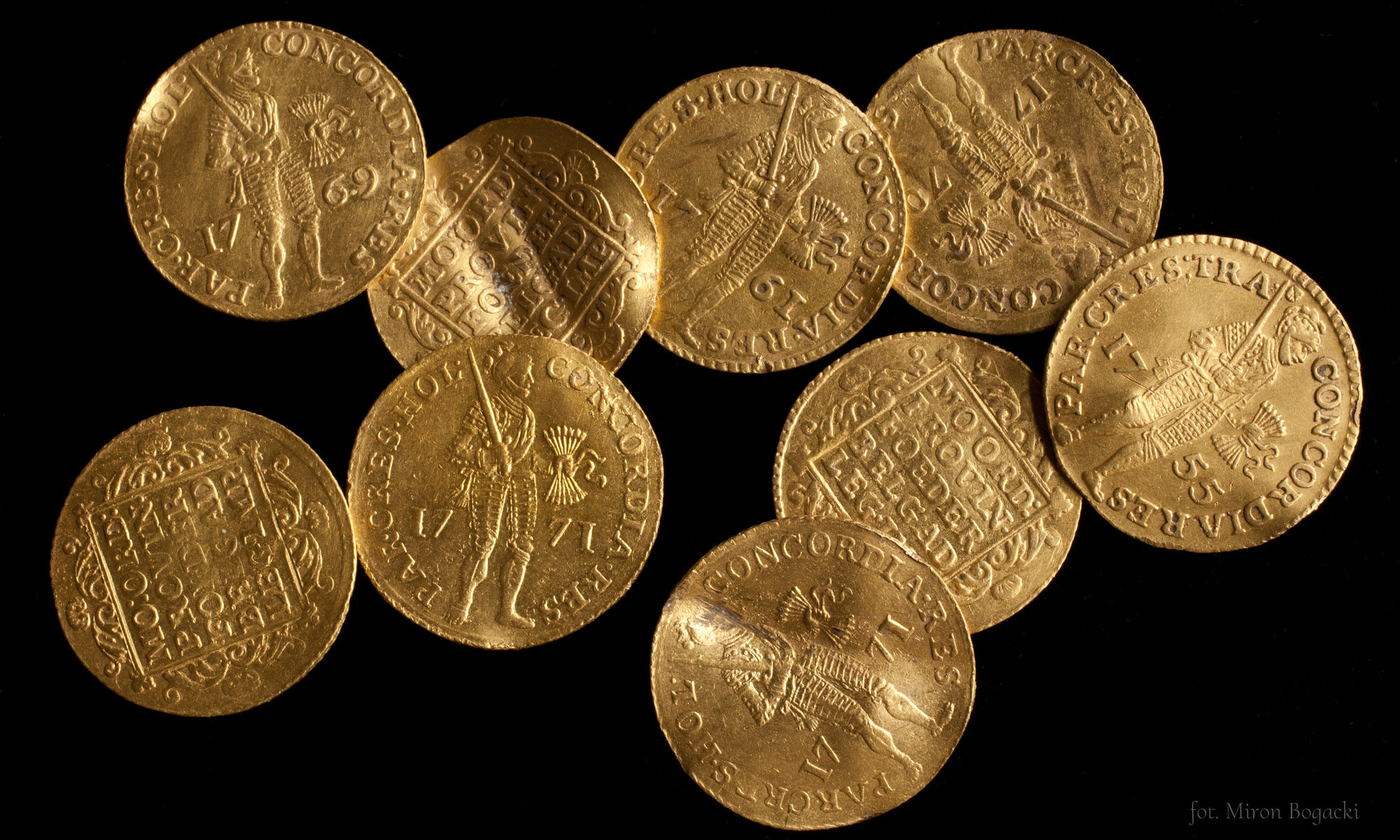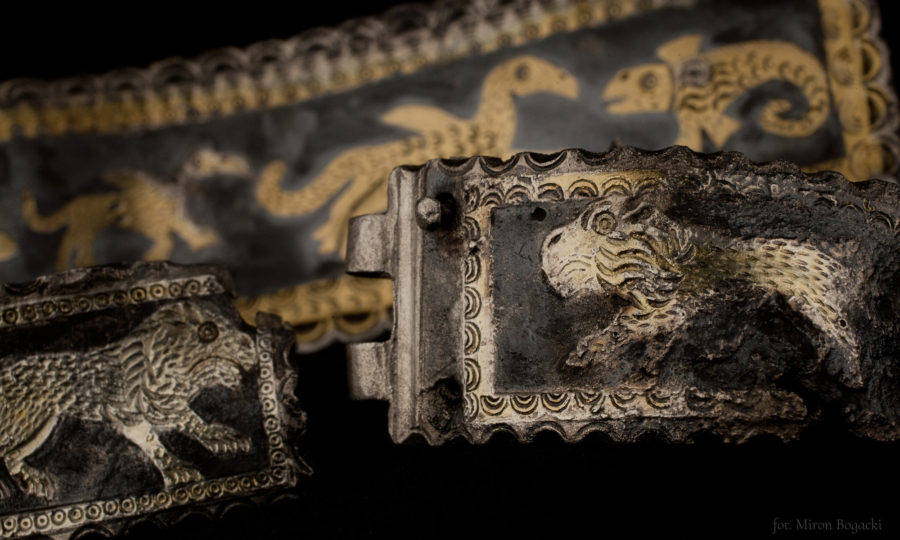
Person conducting excavation:
Tomasz Nowakiewicz, Ph.D. (IAUW), Aleksandra Rzeszotarska-Nowakiewicz, Ph.D. (IAE PAS)
Country: Poland
Type of the site: bog-site
Involved institutions:
Institute of Archaeology and Ethnology Polish Academy of Sciences
Description of the research:
Nidajno-bog is the first in Poland with evidence on the practice of bog sacrifice, better known and associated with ancient Germanic societies and their sites in southern Scandinavia (like Illerup Ådal, Nydam, Thorsberg). In this rite the weapons and various items of a warrior’s equipment (numerous spearheads, battle knives, swords, chainmail) were cast into the waters of a marshy lake. Many of them had been ritually destroyed.
An excavations Czaszkowo are a methodical and logistic challenge, unprecedented in Polish archaeology. However, they provide results without analogies also.
During the research conducted in the sedimentation layers of the former lake, very numerous fragments of weapons were recorded (spearheads, large fighting knives, swords, spurs and even chain mail), among which a significant group was imported from the provincial-Roman zone. Spectacular find is a group of extremely valuable objects manufactured in the best workshops of the ancient classical world: richly decorated belt buckles with zoomorphic representations, larger mounts with images of gryphons, capricorns and less easily identified hybrid beasts, sword-fittings plated in gold (decorated with motif of lions, birds and dolphins), silver and gold figurine of a vulture and fragments of glass cup.
Unusual accumulation of prestigious signs of power which is visible on the items from Czaszkowo is a unique phenomenon not only in the Masurian scale but even the entire continent.
However, the reasons of their placement in the Masurian marsh are still unclear. There is also unclear whether the rituals were practiced by members of a Germanic war band on their way to their Scandinavian homeland from the frontier of Roman Empire or by Balts (Galindians) returning from the same region where they had learnt the prestigious and impressive ritual from their Germanic associates. There is also impossible to rule out that the most valuable finds from Nidajno found themselves in Masuria region as a diplomatic gift handed down in Late Antiquity to one of the local chiefs by one of the rulers of the Ancient world.
Department for the Archaeology of Ancient Europe
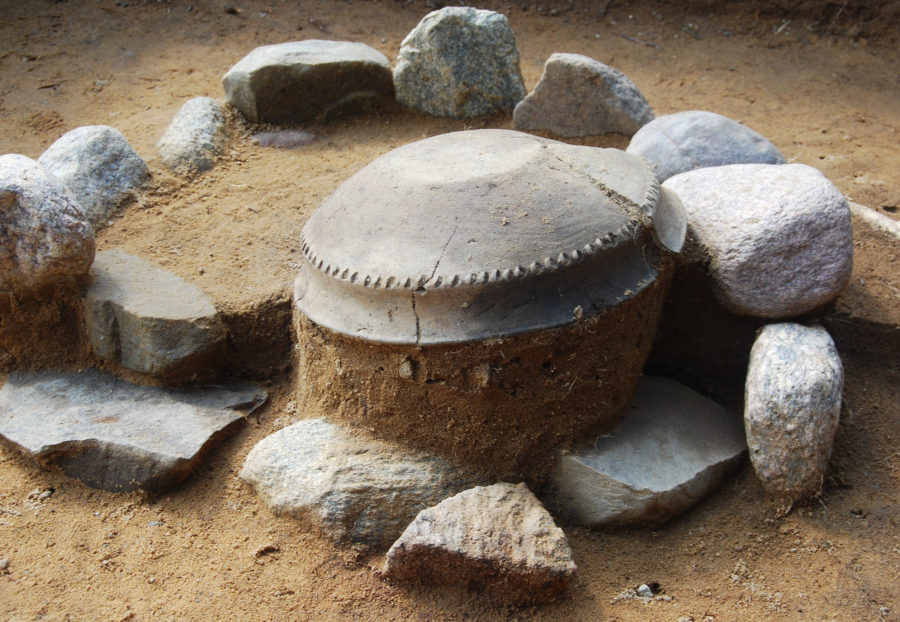
Address: 00-927 Warsaw, st. Krakowskie Przedmieście 26/28, Szkoła Główna, phone. 55-22-805 (806, 807), room. 3.05, 3.06, 3.07
Head of department:
prof. Adam Cieśliński
Eployees:
dr. Sylwia Domaradzka
prof. Bartosz Kontny
dr. Andrzej Maciałowicz
prof. Wojciech Nowakowski
dr. Andrzej Szela
prof. Paweł Szymański
PhD students:
Iwona Lewoc M.A. (supervisor: Bartosz Kontny)
Kamila Brodowska M.A. (supervisor: Bartosz Kontny)
Martyna Wasilewska M.A. (supervisor: Bartosz Kontny)
Paweł Dziechciarz M.A. (supervisor: Bartosz Kontny)
Sebastian Chrupek M.A. (supervisor: Adam Cieśliński)
Agnieszka Jarzec M.A. (supervisor: Adam Cieśliński)
Bartłomiej Kaczyński M.A. (supervisor: Paweł Szymański)
Agata Wiśniewska M.A. (supervisor: Paweł Szymański)
The Department specialises in the archaeology of the Bronze Age, Early Iron Age, Pre-Roman Period, Roman Period, Migration Period and the beginnings of the Early Middle Ages (2nd millennium BC – 1st millennium AD) in vast areas of Central, Eastern and Northern Europe, with special reference to the territory of Poland. Current research concerns first of all various aspects of material and spiritual culture of Balt and Germanic peoples, such as, among others, funeral rites, weaponry studies, changes of settlement structures and interregional contacts, including relationships of the barbarians with the ancient world. The Centre also specialises in so-called archival archaeology, which aims to restore “forgotten” sources which were often scattered during World War II into the academic discourse. Fieldwork of the Centre focuses on the territory of Northern Poland and it encompasses sites of various nature: cemeteries, settlements and cult places.
Excavations:
Czerwony Dwór, site XXI, gm. Kowale Oleckie, woj. warmińsko-mazurskie. Cremation cemetery of the Sudovian culture from the Roman and Migration periods.
Nowy Łowicz, site 2, gm. Kalisz Pomorski, woj. zachodniopomorskie. Barrow cemetery of the Lusatian and Wielbark cultures (in collaboration with A. Kasprzak from the Museum in Koszalin).
Lubanowo Lake, gm. Banie, woj. zachodniopomorskie. Sacrificial site from the Roman period and the early Middle Ages (in collaboration with the Center of Underwater Archeology of the Institute of Archeology, University of Warsaw).
Blicharski Mirosław
Mirosław Blicharski
Library of the Faculty of Archaeology
e-mail:
m.blicharski@uw.edu.pl
phone number:
+48 22 55 22 831
room:
1.16, ground floor
research interests:
– history of books
– libraries in antiquity and the Middle Ages
Lewartowski Kazimierz
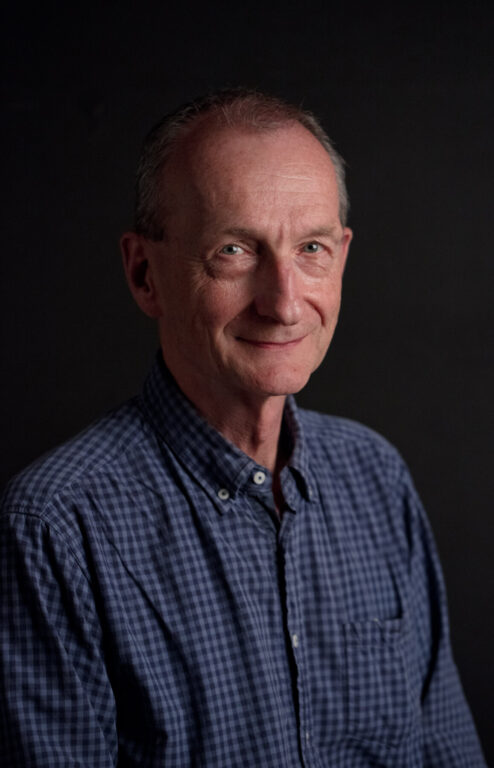
prof. dr hab. Kazimierz Lewartowski
Department of Aegean and Textile Archaeology
e-mail:
k.lewartowski@uw.edu.pl
duty hours:
Wednesday 11.30-12.30, room 3.14
Thursday 13.00-14.00, room 3.14
research interests:
Aegen cultures of the Bronze Age, BA traditions in the culture of Classical Greece, archaeology of death
bibliography:
Kazimierz Lewartowski
Więckowski Wiesław
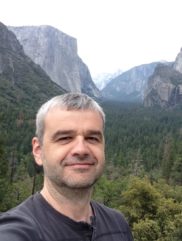
dr hab. Wiesław Więckowski, prof. ucz.
Department of Archaeology of the Americas
e-mail:
w.c.wieckowski[at]uw.edu.pl
duty hours:
Tuesday 11.30–13.00, room 3.23
or
contact me to set up the date for the Google Meet session
research interests:
– bioarchaeology
– funeral archaeology
– taphonomy
– Andean archaeology
– archaeology of Israel
– Hebrew
bibliography:
full list and PDFs at Academia.edu
research grants:
Bioarchaeologist in NCN grant 2015/18/E/HS3/00106 “Andean Women and Their Role in Pre-Columbian and Early Colonial Peru: Castillo de Huarmey Imperial Tomb Case Study” directed by dr Patrycja Prządka-Giersz
Directing NCN grant 2018/02/X/HS3/00850 “Analysis of the burial of Chinese diaspora representative at Castillo de Huarmey archaeological site, Peru”
Kontny Bartosz
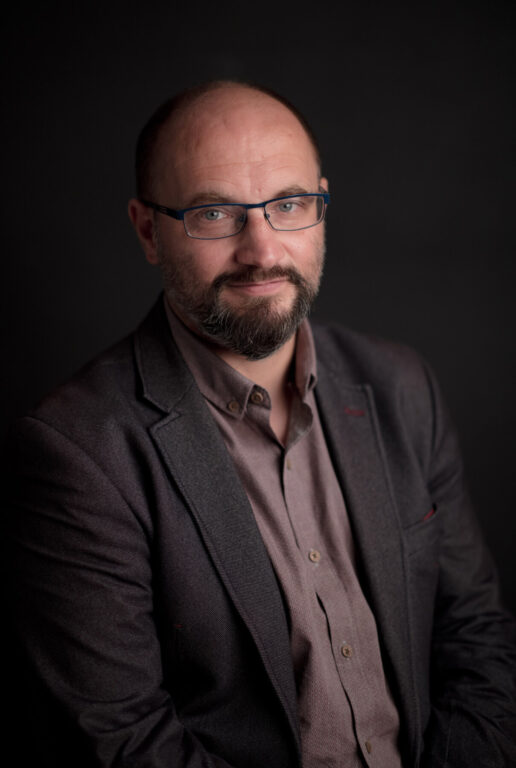
dr hab. Bartosz Kontny, prof. ucz.
Department of Barbaricum and the Roman Provincial Archaeology
e-mail:
bdkontny@uw.edu.pl
telephone:
+48 (22) 55 22 800 (secretariat)
duty hours:
Tuesday 1.15 a.m. – 3.15 p.m., office
Thursday 11.15 a.m. – 1.15 p.m., office
duty for students:
Tuesday 3.15 p.m. – 5.15 p.m., room 3.05
research interests:
– archaeology of Pre-Roman
– Roman and Migration Period in the Barbaricum / ancient weapons / underwater archaeology / boatbuilding
bibliography:
Academia.edu
ResearchGate
Ciołek Renata
dr hab. Renata Ciołek, prof. ucz.
Chair of Classical Archaeology
e-mail:
renataciolek@uw.edu.pl
duty hours:
Monday remote: 4.30 p.m. – 6.30 p.m., permanent link, no appointment necessary https://meet.google.com/orf-ssvj-swz
Monday stationary: 2.45 p.m. – 3.30 p.m., room 209
Tuesday stationary: 2.45 p.m. – 3.30 p.m., room 320
research interests:
– ancient numismatics
– archeology of Poland of the period of Roman influence
bibliography:
Bibliografia – Renata Ciołek
Wielgosz-Rondolino Dagmara
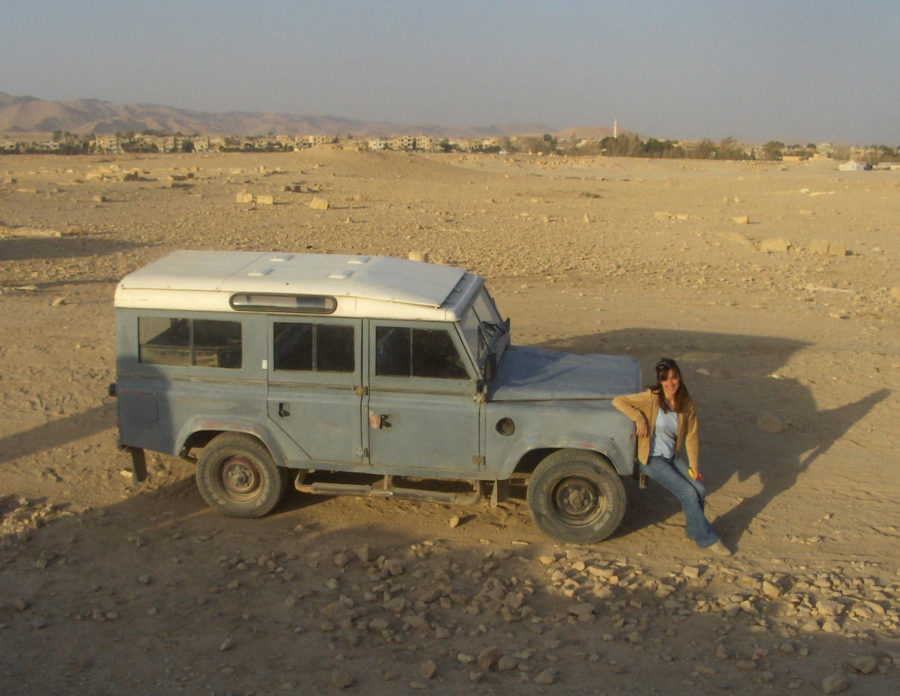
Dr. Dagmara Wielgosz-Rondolino
Chair of Classical Archaeology
e-mail:
dagmara.wielgosz@uw.edu.pl
duty hours:
Tuesday 11.00 am – 1.00 pm, room 3.17
research interests:
Eastern Mediterranean in the Graeco-Roman period. Marble and other rocks in antiquity: identification, use and trade. Archaeometric research.
curently conducted projects:
The research project in ancient quarries of Asia Minor. The objective of this project is to document the archaeological settings as well as topography and geology of the most important ancient marble quarries in Asia Minor. Another goal is to develop an extensive database of petrographic and geochemical properties of white and grey marbles from the ancient quarries of Asia Minor (Dokimeion, Altıntaş, Göktepe, Aphrodisias, Prokonnesos and Ephesos). The project is based on a multidisciplinary study within a collaboration between specialists from different disciplines such as archaeology, petrology and geochemistry. It is financed by the National Science Centre, Poland.
selected bibliography:
– Dagmara Wielgosz-Rondolino.pdf
Starski Michał
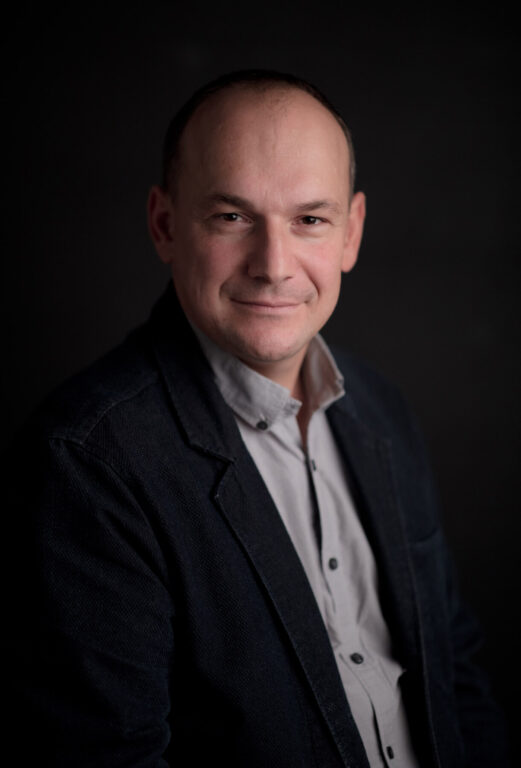
Dr. Michał Starski
Department of Medieval and Early Modern Archeology
Vice-dean of Finances
e-mail:
m.starski@uw.edu.pl
telephone:
+48 (22) 55 22 800 (secretariat)
duty hours:
Monday 11.30 a.m. – 1 p.m., office
Wednesday 12.30 a.m. – 2 p.m., office
duty for students:
Wednesday 11.15 a.m. – 12 p.m., room 0.36
Thursday 3 p.m. – 4 p.m., room 0.36
research interests:
– late medieval and post-medieval archaeology
– ceramics
– Pomerelia
– Prussia
bibliography:
Michał Starski.pdf
Department of Archaeology of Egypt and Nubia
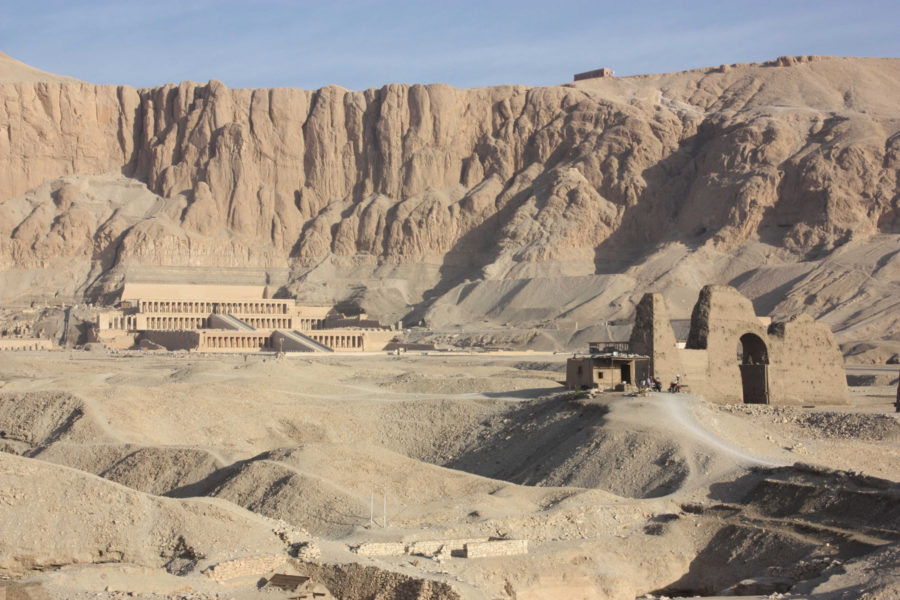
Address: 00-927 Warszawa,ul. Krakowskie Przedmieście 26/28, Szkoła Główna, room 3.25, 3.08
tel. (+48) 22 55 22 825
Head of department:
dr hab. Anna Wodzińska annawodzinska@uw.edu.pl
Eployees:
dr hab. Mirosław Barwik mbarwik@uw.edu.pl
dr Dorota Dzierzbicka d.dzierzbicka@uw.edu.pl
mgr Łukasz Jarmużek l.jarmuzek@uw.edu.pl
dr hab. Sławomir Rzepka s.rzepka@uw.edu.pl
dr Dobrochna Zielińska d.zielinska@uw.edu.pl
prof. dr hab. Andrzej Niwiński andrzejniwi.egipt@gmail.com
dr Gertrud van Loon gertrudjmvanloon@uw.edu.pl
PhD students:
Katarzyna Danys
Bogusław Franczyk
Dagmara Haładaj
Adrianna Madej
Maciej Wyżgoł
Excavations:
Tell el-Retaba
Deir el-Surian
Deir el-Bahari, temple of Hatshepsut
Old Dongola
